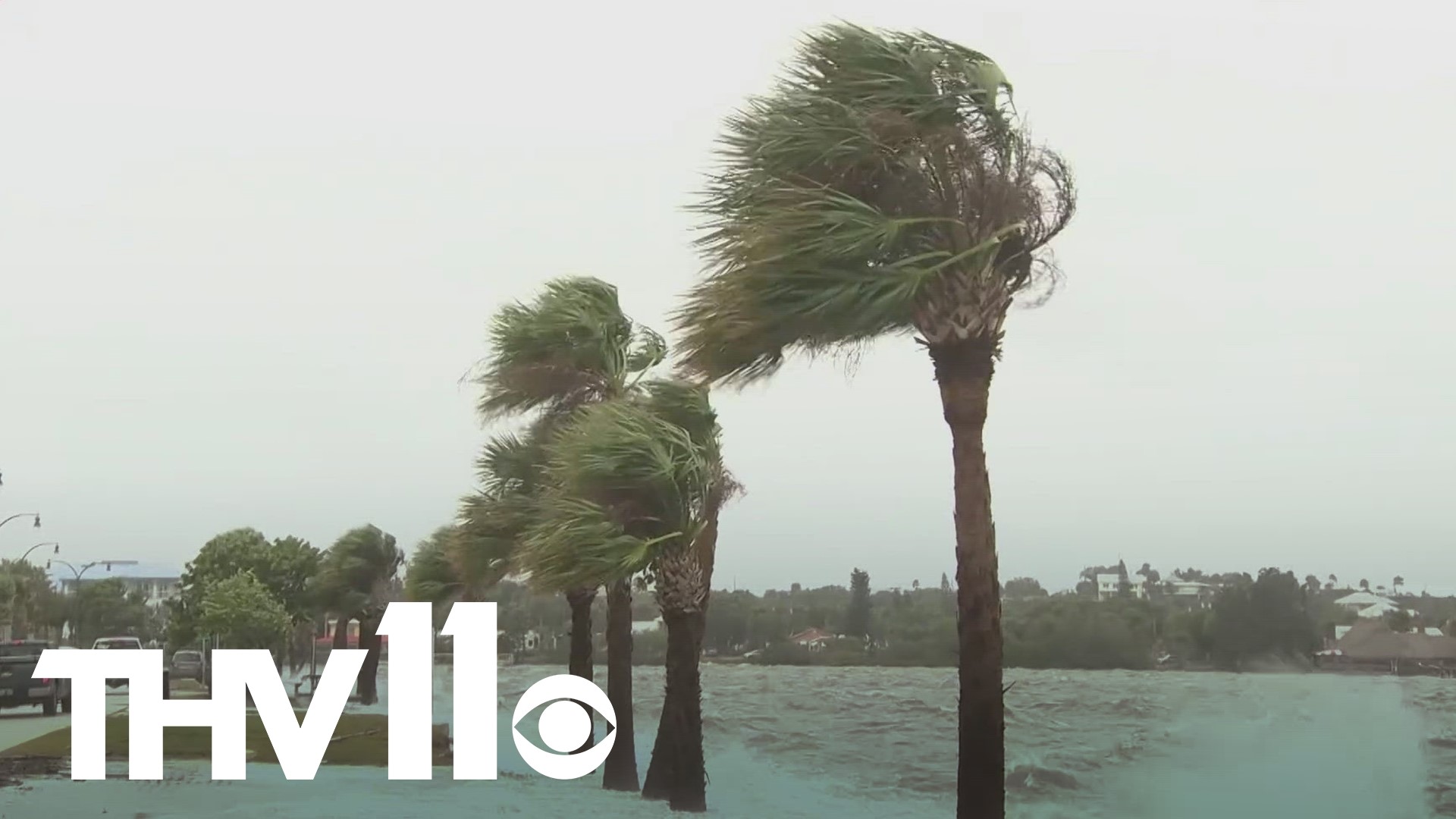LITTLE ROCK, Ark. — From tornadoes to ice storms and droughts, Arkansans are used to extreme weather. Though we aren’t impacted by hurricanes or tropical storms often, a new study suggested that may be changing.
The research was conducted by First Street Foundation, a nonprofit science and technology organization. The top line of their research found that while the total number of tropical storms or hurricanes may not increase, their intensity likely will.
With the intensity of these natural phenomena increasing, that means impacts felt further inland in places such as Arkansas.
“Over the next 30 years we're going to see stronger hurricanes that are moving slower, dropping more precipitation, and they're also bringing more winds further inland,” explained Jeremy Porter, a scientist with the group.
These findings are a result of over 50,000 simulated hurricane tracks over the next 30 years. To generate these simulated storms the group coupled historical hurricane tracks with current warming trends.
Of the ingredients necessary to fuel stronger hurricanes, Porter said they are abundant.
“Warmer sea surface temperatures, warmer land temperatures, and increased water vapor in the air will lead to future environmental impacts,” he described.
These impacts, specifically worsening winds exceeding hurricane criteria, are projected to impact more than 13 million properties that aren’t currently exposed to hurricane-force winds.
“The fact that those hurricanes are stronger, and they're holding together and sort of being sustained all the way up through landfall up into southern Arkansas really is a climate signal that we're starting to see in the wind models,” Porter explained.
This data is, of course, all simulated, but the price we pay for the increasing exposure alone comes with a very real price tag.
“The insurance market is responding to where the risk is changing. As climate risk becomes more probable into the future for certain areas, you're likely to see some adjustments from the insurance industry there," he said.

